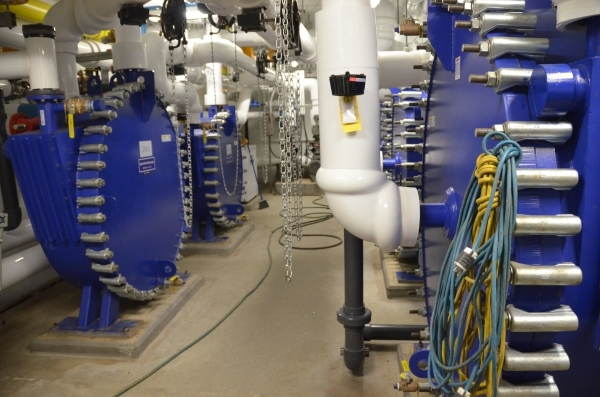BRATTLEBORO — Several businesses that owe money for use of town water and sewer may soon receive notice of delinquency and face the loss of their access to water and sewer.
At its Aug. 11 meeting, the Selectboard approved reinstating water disconnections for those commercial and industrial businesses that have fallen behind on their utility bills.
Town Manager Peter Elwell told the board that 10 businesses owed the town a combined total of $173,877.32 for these services.
While he was reluctant to name the businesses in question, Elwell noted that they used “significant amounts of water” as part of their production cycle.
One of the businesses was behind on its water and sewer bill prior to the COVID-19 pandemic, he said.
Elwell added that the town's policy is to work with delinquent bill payers to set up a payment plan. The town attempts to set up a plan first, rather than go straight to shutting off utilities, he said. Over the years, the town has arranged “all different kinds of payment plans,” he noted.
For commercial and residential customers, Elwell said, town staff worry that if a bill goes unpaid for too long it will continue to grow until it's too big for the account holder to pay off.
Because municipalities are not regulated utilities, Elwell said, they don't have the authority under state law to waive utility penalties or fees.
The water shutoff would not affect any fire sprinklers or hydrants.
Water kept running during pandemic
The board's action will only apply to commercial or industrial businesses. The pandemic-inspired suspension of action against delinquent residential accounts is still in effect.
In March, the board approved a temporary suspension on shutting off water or sewer services across the board in response to the COVID-19 pandemic. Staff and board members viewed access to clean water as necessary to maintaining public health.
“Given that the most basic individual response one can employ to interrupt the transmission of COVID-19 is frequent hand washing with soap, it makes good sense from a public health perspective not to limit the public's access to water,” Assistant Town Manager Patrick Moreland wrote in a July 31 memo to the board.
At the same time, staff and board members recognized that, also due to the pandemic, many households and businesses would likely experience economic hardships.
In his memo, Moreland noted that since March, the treasurer's office has noted “an increase in delinquent utility accounts.”
“While the greatest number of delinquent accounts are residential, most of the value of the delinquent payments are from a limited number of commercial or industrial users,” Moreland wrote.
According to his memo, 85 residential accounts owe a total of $69,065.65 in overdue payments.
Board members agreed with town staff that access to water is still necessary for maintaining public health during the pandemic and will hold on reinstating any shutoffs for residential customers.
Financial help for residents
Board member Daniel Quipp, who also works for Southeastern Vermont Community Action (SEVCA), said that because the town is not a regulated utility, many of the federal funds designated to help people pay bills during the pandemic cannot be used to pay a municipal water or sewer bill.
Quipp added, however, that people can access other support programs to fund things like food, electricity, phone, or internet, which can free up household money.
SEVCA is a good place to start, Quipp said. If the organization can't help, staff can usually point people to other programs that can, he said. To contact SEVCA, visit sevca.org or call 800-464-9951.
Board member Brandie Starr said that while the state might be relaxing some of its restrictions under the state of emergency, not much has improved financially for residents.
She urged residential customers “to not feel ashamed or penalized” and reach out to the town for help in creating a payment plan.
“So it [the bill] doesn't become something you're buried under,” she said.
